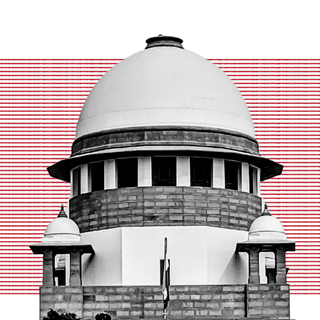The International Olympic Committee (IOC) last week released a set of guidelines on when, where, and how athletes participating in the upcoming Tokyo Games can stage protests. The guidelines are small amendments to the controversial ‘Rule 50’ of the Olympic Charter that states: “no kind of demonstration or political, religious or racial propaganda is permitted in any Olympic sites, venues or other areas.”
With the new amendments, athletes are now allowed to protest against socio-political issues via symbolic gestures, including kneeling, raising a fist, or wearing clothing with political messages — before the start of events, during athlete introductions, or after the completion of the competition. However, the restrictions on any kind of demonstrations still hold during the play, any of the opening, closing, or other official ceremonies, or in the Olympic Village.
Importantly, athletes are now allowed to express their views on social media during the duration of the Games — this was not allowed as recently as the 2014 Sochi Winter Olympics. Previous guidelines explicitly banned specific acts of protest such as kneeling or raising fists — used in the Black Lives Matter movement — in a bid to prohibit any form of “political, religious, and ethnic demonstrations.”
The guidelines echo the fraught relationship between athletics and activism. The IOC, along with organizers of other competitions, has held on to a long-standing belief that politics and sports should never intersect — feeding into a notion that sports are a sacred space, existing in silos.
Thomas Bach, president of the IOC, wrote in The Guardian summarizing this: “The unifying power of the Games can only unfold if everyone shows respect for and solidarity to one another. Otherwise, the Games will descend into a marketplace of demonstrations of all kinds, dividing and not uniting the world.”
“Our political neutrality is undermined whenever organizations or individuals attempt to use the Olympic Games as a stage for their own agendas, as legitimate as they may be,” Bach added.
“Sportsmanship” is seen in terms of exercising neutral ideas of justice, fairness, and ethics — but is often divorced from what these ideas mean when applied to the real world. Athletes and sportspersons often face social sanction for their self-expression, and for using the sporting arena to air their protest against injustices anywhere.
Related on The Swaddle:
All The Arguments You Need: to Advocate for Equal Pay in Sport
But recent times have shown that athletes are pushing to exercise their freedom of expression, despite facing resistance from sporting federations and the IOC itself. A case in point is American hammer thrower Gwen Berry, who recently turned her back on the American national anthem in protest against racial injustice. She faced criticism for donning a shirt that read “activist athlete” while doing so.
Moreover, many black and trans athletes especially have been vocal about racial injustice or about gender discrimination within sports itself. The idea of political neutrality in sports overlooks that competitions like the Olympics have been used to either maintain or enable politically harmful ideas of racial purity, xenophobia, and discrimination in the past.
Since the infamous 1936 Olympics hosted by Nazi Germany and opened by Hitler, the IOC has tried to make amends by expelling South Africa for its apartheid policies in 1964. But such measures are few and far between, and come only in response to significant international pressure. Players belonging to specific marginalized groups today also continue to feel threatened when the Games are hosted in countries where they face persecution.
Notably, powerful acts of defiance against systemic injustice, racist and xenophobic politics have marked the history of the Games — protesters have used flags, raised fists (the Black Power salute), turned away from national emblems, and used boycott as a form of solidarity with particular causes. These have consistently been met with sharp criticism, sanctions, life bans, and probation periods for the athletes.
Closer to home, Indian athletes have also faced similar restrictions on freedom of expression. In December last year, a march to Rashtrapati Bhavan led by Asian Games gold medalist wrestler Kartar Singh sought to return 35 awards in solidarity with the farmers’ protests. The march was stopped by the police midway, however, and sent back. The show of support elicited critical comments from the Indian Olympic Association, who said that the farmers’ protest and the awards were “two separate things.”
In the end, the insistence to keep fighting for social justice is critical. The Global Athlete, a collective that advocates for athletes’ rights, said that Rule 50 was a violation of the athletes’ freedom of expression and human rights. “If athletes want to speak up while respecting other rights and freedoms detailed in the Universal Declaration of Human Rights, the IOC should embrace their diverse opinions,” their statement read.
Experts argue that the Olympics can serve as a conduit for positive social change, and allowing protests could further the Games’ commitments toward racial and gender equality.




